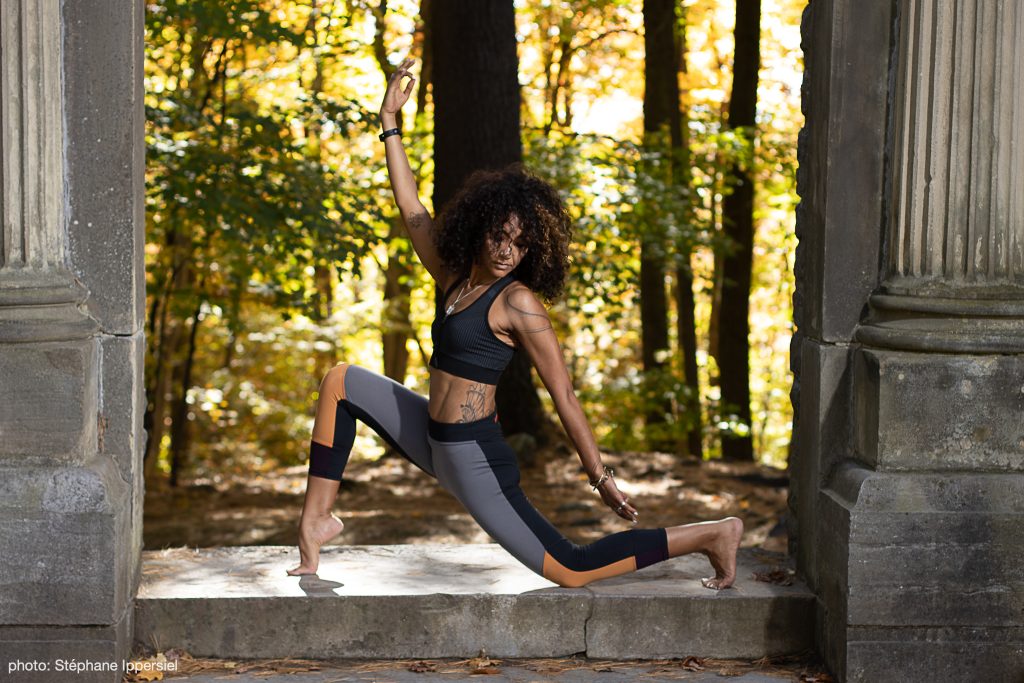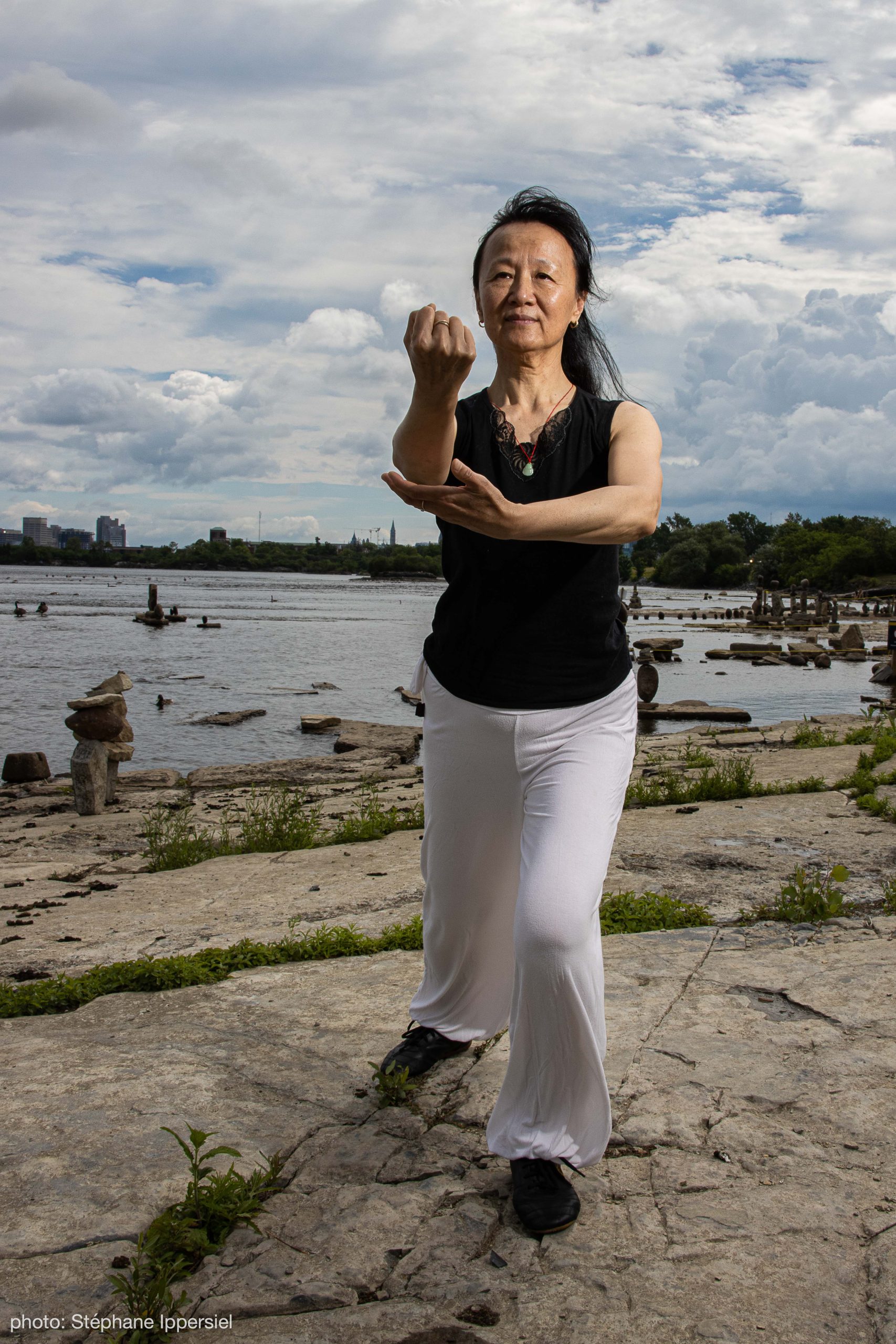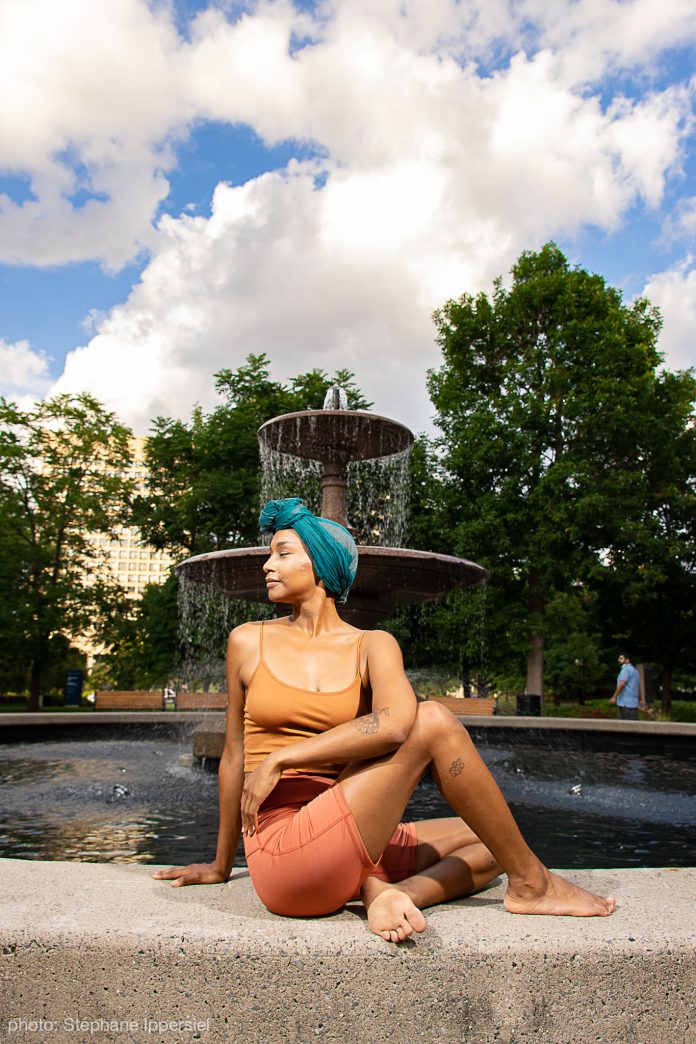By Maureen McEwan
Two summers ago, thousands of Ottawa residents protested at Parliament Hill in support of the “No Peace Until Justice” march against racism and police brutality on June 5. The event was organized just days after 46-year-old George Floyd was killed by police officer Derek Chauvin on May 25, 2020 in Minneapolis, Minnesota. Black Lives Matter and anti-racism protests took place all over the world following Floyd’s death.
Around that time, Kethy Sosso-Kolle posted a video. The longtime yoga practitioner (or “yogi”) was frustrated by a yoga studio’s reaction to the Black Lives Matter movement. While it wasn’t “necessarily wrong,” Sosso-Kolle said the studio’s response did not raise any awareness in Ottawa.
“It just did not actually create awareness [about] what had been missing in our studios, which was diversity of bodies, diversity of races, etc. It was just a very general, you know, ‘oh we’re sorry and we’ll do better,’” she said.
In the video she posted, Sosso-Kolle said she encouraged studios to be more explicit in public apologies and reflections on diversity and how to make spaces more inclusive, especially given the yoga audience was predominantly white.
Stéphane Ippersiel reached out to Sosso-Kolle after seeing the post. The two had been in the same yoga circles for years, and together, they co-founded BIPOC Yogis of Ottawa in summer 2020. The organization’s goal was “to raise awareness of Ottawa yogis who identify as Black persons, Indigenous Peoples or Persons of Colour (BIPOC), and the varying sense of belonging felt by these yogis in mainstream yoga and wellness institutions,” according to its website.
Sosso-Kolle said that, in her experience, yoga spaces weren’t reflecting the diversity she was seeing in the city.
“In most of the studios that I go to, I’m the only Black woman there, for instance, which is not representative of the population in Ottawa,” she said

Initially, BIPOC Yogis of Ottawa started with a visual representation project. Ippersiel, a photographer, invited BIPOC yogis for photoshoots.
“We started creating these images with yogis without a clear plan of what we were going to do with this content. But, we knew we had something. We knew we were up to something,” said Ippersiel.
The plan unfolded: they created a website featuring the photos to elevate the images and “lived experiences of the Yogis in the BIPOC community who live in the Ottawa-Gatineau region” through their platform, the website stated.
In the industry, Sosso-Kolle said there’s a lot of yoga stereotypes.
“There’s a lot of misinterpretation or misunderstanding of what yoga is and what yoga should look like,” said Sosso-Kolle.
“Maybe prior to 2019, when you Googled ‘yoga,’ you would mostly have slim, athletic bodies, white women with blonde hair—essentially, there was a stereotype of what yoga should look like.”
To date, there have been two rounds of photoshoots (summer 2020 and summer 2021) and there may be a third round in near future. Sosso-Kolle said photoshoot participants have been happy to be involved with the project and to share their stories, hoping to bring change to the Ottawa-Gatineau yoga landscape.

Once the multimedia site was running, Ippersiel said the plan for BIPOC Yogis of Ottawa “morphed” and the organization began evolving: one of their yogis suggested that their next step could be to fundraise so they could help BIPOC yogis.
“The idea became to fundraise so we could help BIPOC yogis [become yoga teachers] so that with a bit more representation in the studios, the spaces would become, hopefully, a bit more welcoming to BIPOC yogis,” Ippersiel said.
“It’s just helping to nudge, in a very humble way, [the community] to have more BIPOC yoga teachers,” he added.
Sosso-Kolle said the fundraising served as a way for the organization to give back to the community “in a more tangible way.”
“We started the fundraiser [in March 2021] and through the generosity of Ottawa in general, we were able to gather a little over $6,000 dollars,” said Sosso-Kolle.
By fall 2021, they gave four scholarships of $1,500 for instructor training—or Yoga Teacher Training (YTT) certification programs—to aspiring yoga teachers who identified as BIPOC.
“I do hope that our project has helped some yogis feel that they have a place in the yoga studios, maybe more than they thought they did before,” Ippersiel said.
While BIPOC Yogis of Ottawa has seen some positive steps, there’s a lot of work to be done.
“The yoga space in general was not—or at least up until now—[really] putting BIPOC folks at front and centre of mind in their marketing, in their way of thinking,” Sosso-Kolle said.
The BIPOC Yogis of Ottawa co-founder said it is important to look at a number of factors—the instructors and studio staff who are hired, the training for equity, diversity, and inclusion that was established and if the training is put into action, how incidents of racism would be addressed by the studio and more—as well as the systems being put in place at studios to make them “truly welcoming.”
Moving forward, Sosso-Kolle said she’s been focused on creating space for BIPOC yogis.
“Instead of forcing studios to change, how about we just tell them ‘hey, we’re creating a space for us, by us in this corner here. Can you support us?’”
Ippersiel agrees on where BIPOC Yogis of Ottawa is headed.
“The next step for us is to lobby yoga studios and just approach them and invite them into the conversation,” he said. “Kethy speaks a lot about not calling out studios, but calling in studios and to make sure that they are part of the conversation because they are part of the solution.”
The yoga industry could do a better job overall at being “more inviting,” he said.
“Aside from creating specific space for BIPOC yogis, we need to do better to include yogis of every kind into the space,” Ippersiel said. “But I think right now, for us, it’s more about making sure that BIPOC yogis are seen and that they are made to feel welcome in the traditional yoga spaces.”
Sosso-Kolle agreed, adding that it is about accountability in the yoga industry.
“There’s more layers to a person than just race,” she said. “So there’s so many other things that we probably need to work on to make our spaces more and more welcoming as we go.”
Ippersiel and Sosso-Kolle met when Ippersiel was teaching yoga at a studio in Little Italy. He remembers Sosso-Kolle was a “powerful, dedicated yogi.” Sosso-Kolle remembers that they had a professional connection as yogis.
“It was what they call a ‘yoga crush.’ My friend and I were like ‘we love his class, we go all the time!’” she said, laughing.
When Ippersiel started a photo project years ago, Sosso-Kolle was one of the first participants. Eventually, both ended up teaching at PranaShanti Yoga Centre (950 Gladstone Ave.) in Kitchissippi, where they work today.
“When you meet somebody whose energy you connect with, right off the bat, you know. And Kethy is one of these people in my life,” Ippersiel said. “Right off the bat, I knew I was dealing with a very amazing person.”
Visit bipocyogisottawa.ca to learn more about the organization.
